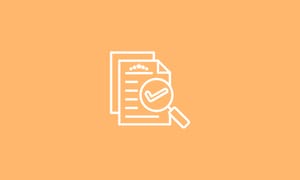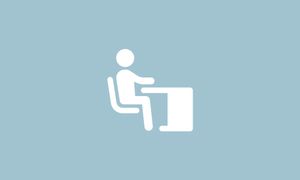There are only so many hours in a working day, and managing your time effectively is the key to success. That's why it shouldn't come as a surprise to hear that time management is a field where a lot of studies have been carried out, and there are a variety of books on the subject. Time management can be broken down into two simple steps: Knowing your priorities and then tackling them head on.
Learning effective time management can have a trickle down positive effect on you as a person. You learn how to improve productivity, and by getting more things done in less time, you decrease your stress levels, leaving you in a better state of health overall. However, with all this hype on time management, you may wonder if it's as effective as some claim it to be. To answer your this, let’s take a look at some statistics.
If someone isn't organised and has a messy or cluttered workplace, they will spend 1.5 hours per day either being distracted or searching for missing things and in a single week, could equate to approximately 7.5 hours of lost time.

According to the American Psychological Association Survey (3/5/2013), chronic stress is affecting one-third of employees in the workplace. Work stress usually accumulates when you have too much work to do but have not mastered time management to do it more efficiently. This, in turn, leads to employees being overworked which adversely affects their work-family balance and can also result in sleep deprivation.
Harvard Medical School did a study in 2013 which found out that sleep deprivation of employees costs US companies 252.7 days of lost work and $63.2 billion of lost revenues a year due to low levels of productivity. This can be fixed with efficient time management where you get more done in the same amount of time and hence have adequate time left for a restful night’s sleep.
A recent study by the US Centre’s for Disease Control and Prevention found that one-third of adults are not getting enough sleep. Lack of adequate sleep is associated with an increased risk of chronic health conditions such as heart disease, obesity, diabetes, high blood pressure and hypertension.
When something as simple as sleep affects you so much on a physical level, you know you need to prioritise better, and learning time management techniques would empower you to do just that.
Organisation and time management go hand in hand, not just on a professional level but also on a personal level. For example, according to the US National Soap and Detergent Association, getting rid of excess clutter in your house cuts down housework by 40%.
Plus, keeping in mind how technology goes hand in hand with saving space and time, a time tracking tool can drastically cut down time wastage and help improve your productivity levels.
All these figures show that time management is very much needed and is in fact very effective, and without proper knowledge of time management techniques, employees and employers can suffer in terms of lost productivity, lost revenue and deteriorating health.
Time management is a skill that can be learned and enhanced, and knowing how people spend their time is a way to understand it. Below are some interesting facts on time management:
Choosing the right leisure activities
A person partakes in recreational activities to get some relaxation time away from work related tasks. However, studies have shown that choosing the right type of leisure activity can drastically impact you on a personal level.
If you choose reading as a source of relaxation compared to watching television, you are more likely to learn skills that would benefit you professionally and also on a personal level.
Since time is a limited resource, reading would be a more productive activity and hence it is important we choose the right leisure activities which can benefit us in the long run.
Statistics on working parents with children
If you happen to be a parent, you are already going to be struggling for time. A 2015 Pew research study showed that in 2015, figures of households with both parents working full time had increased to 46%.
The majority of these parents claim they don’t have enough time to manage their work-life balance effectively. Spending time with their children is even more important for working parents. However, working mothers tend to indirectly face a ‘motherhood penalty’ if they ask for flexible working hours or take time off for important situations like caring for a sick child. This is why working parents need to make effective time management techniques a priority.
Importance of prioritising sleep for teens
As a teenager, you have a whole host of things you'll want to do such as hang out with friends, catch up on your studies, take part in school and college activities, etc. Most teens tend to lag behind when it comes to getting adequate sleep.
However, teens need at least nine hours of sleep per night, or else they would be termed as being sleep deprived. A Brown University study of teen achievement and sleep, students who consistently slept more were more likely to get A grades while sleep deprived students would usually get D’s and F’s.
Number of interruptions per hour
The average person gets 7-8 distractions per hour, which in turn equals 50-60 interruptions per day. The majority of these issues have been found to be unnecessary so controlling your interruptions and distractions would drastically improve the effectiveness of your time management.
Time management figures of the average person
Unsurprisingly, time management is becoming a very common skill people are using to improve their lives. The average person now uses thirteen different time management techniques.
The importance of time management is becoming more appreciated as we evolve, and looking at the above interesting facts and figures, this is indeed a field where more study and research is rightly justified.






